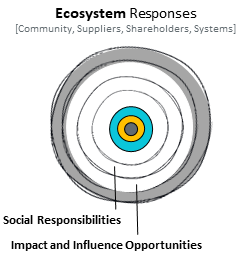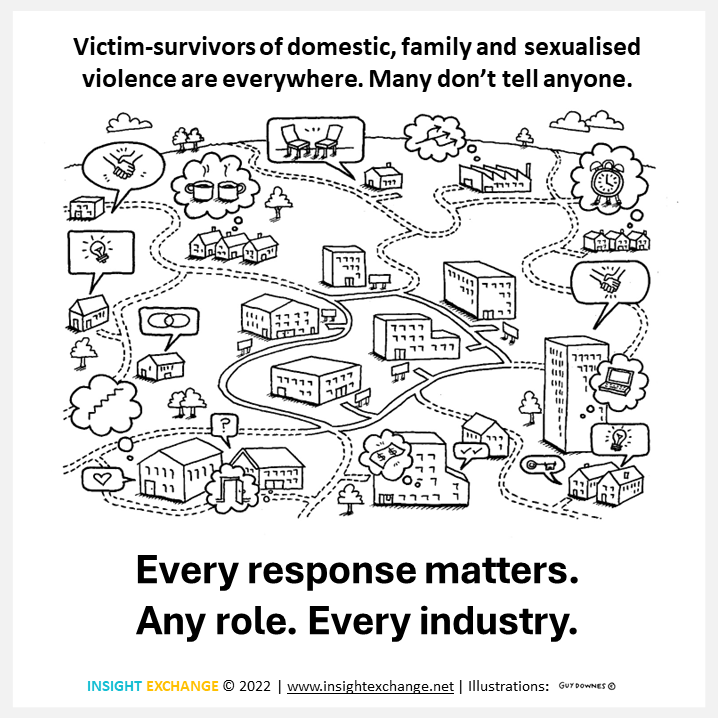Ecosystem Responses
[Community, Suppliers, Shareholders, Systems]
We invite organisations and institutions to understand the importance of ecosystem responses in the context of a strategic holistic response to domestic, family and sexualised violence.
Organisations have significant influence not just with their employees and customers but also their sector, their suppliers, shareholders, stakeholders and local communities where they operate.
Organisations can choose the standards they require of their suppliers, who they do business with, and how they support local communities. They can choose which stakeholders they engage with and what issues they make a priority.
Read and commence application of the Support Menu (Ecosystem Focus)

FRAMEWORK
- Reflect on the Futures Framework
- Follow the Leadership Roadmap
- Implement the Support Menu (Ecosystem Responses)
FOUNDATIONS
View Insight Exchange Foundations (45 mins video) & Foundations Applied (40mins video).
The Insight Exchange Reflections Kit collates the resources featured in the Foundations and Foundations Applied.
Seeing Possiblities
Social, service and systemic responses to domestic, family and sexualised violence are interdependent. These responses have the potential to alleviate or compound the adverse impacts and experiences of victims of violence. The status quo of the ecosystem impacts people in, or engaging with, your organisation/institution. And we are all part of the ecosystem.
Seeing possibilities: Imagine the difference it would make for victims-survivors if all workplaces, businesses, family, friends and specialist and statutory services were informed and ready to respond?
View the Insight Exchange animation ‘Seeing Possibilities’ (6mins)
Why ecosystem responses matter?

People who are perpetrating violence and abuse rely on poor responses from society, services and systems to conceal or excuse their actions and to evade responsibility and consequences. They are more able to extend their use of abuse and control when information and communication about DFSV and support options are opaque, unclear or unsafe to access.
People subjected to violence and abuse rely on multiple parts of a complex information and support ecosystem for their safety and wellbeing. The more disparity there is between different parts of the ecosystem, the tougher and more compromising it is for victim-survivors to access information and to navigate support.
It may be the first, only or last time a victim-survivor of domestic, family and sexualised violence (DFSV) reaches out. Every response matters.
There is no one preference or path for support. Every responder, community and industry matters.
Creating Conversations
Creating Conversations is an event series designed to bring people together with the understanding that domestic, family and sexualised violence is a ‘shared social issue’.

